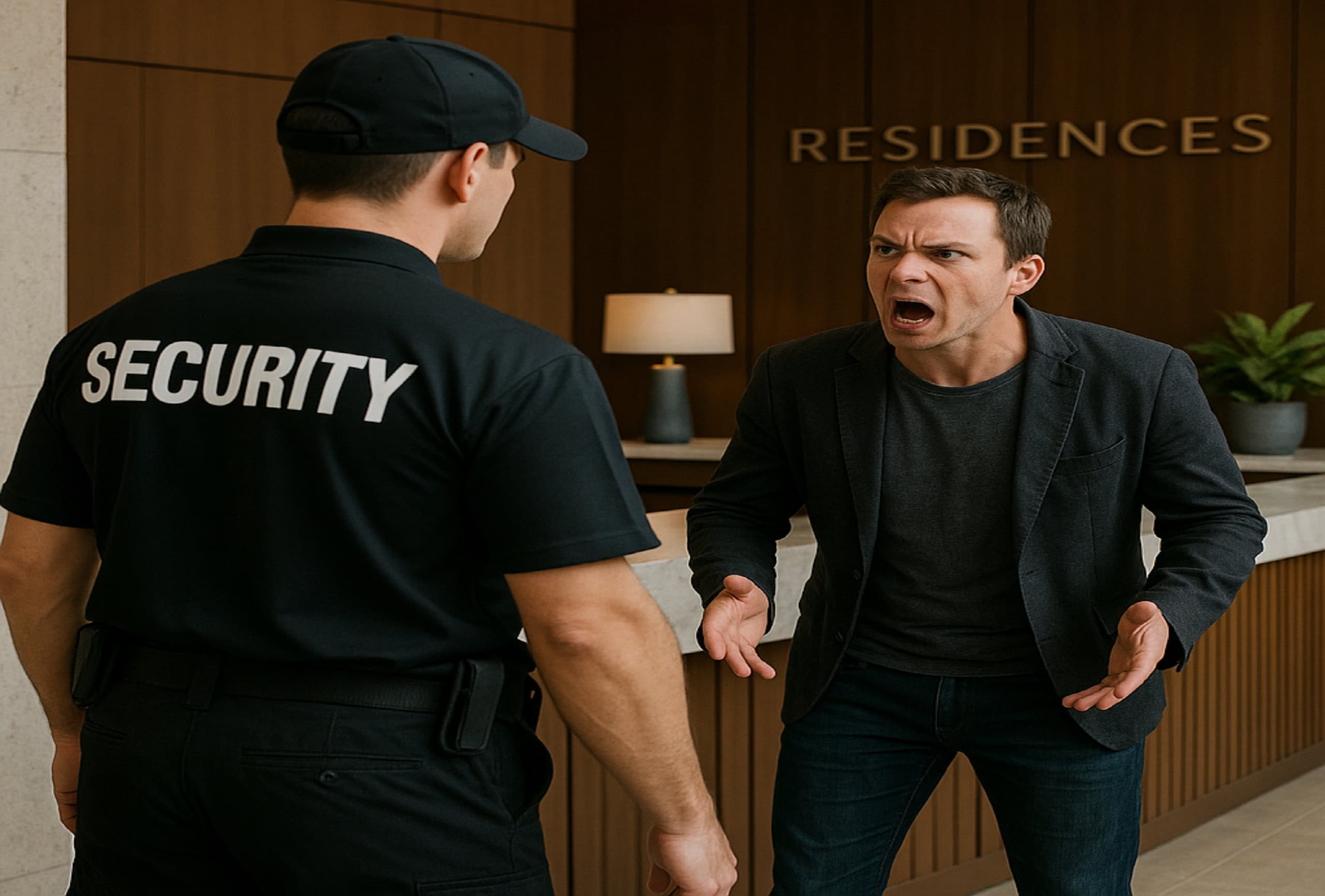What is De-Escalation? A Guide for Manitoba Security Guards
Conflict is part of everyday life. Whether it happens at work, in public, or during private interactions, situations can quickly shift from calm to confrontational. For Manitoba security guards, learning how to manage these conflicts is more than just a helpful skill — it’s a job requirement.
De-escalation refers to the deliberate strategies used to reduce the intensity of a conflict before it escalates into aggression or violence. Security guards in Winnipeg, Brandon, Thompson, and throughout Manitoba frequently face tense situations in shopping centres, healthcare facilities, bars, or public events. The ability to defuse conflict safely and professionally is critical for protecting both the public and the guard.
But what does de-escalation really mean, and how can security professionals in Manitoba apply it effectively on the job?
The Essence of De-Escalation
Psychologists Owen Price and John Baker describe de-escalation as balancing tolerance and control — what they call “pliability.” A skilled guard demonstrates flexibility: firm but calm, in control but approachable, prepared to act but patient enough to wait.
For security professionals, de-escalation is not just about calming people down. It’s about:
- Creating an environment where resolution is possible.
- Reading the subject’s emotions and responding appropriately.
- Remaining calm and composed to set the tone for the interaction.
In short, effective de-escalation allows Manitoba security guards to reduce risk, prevent violence, and build trust with the public.
Key Traits of Effective De-Escalators
The best security guards in Manitoba share common qualities when it comes to conflict management:
- Openness and honesty – Clear communication builds trust.
- Self-awareness – Staying calm under pressure prevents escalation.
- Supportiveness and non-judgment – Listening without judgment keeps people engaged.
- Confidence without arrogance – Firm but not intimidating.
- Empathy and authentic concern – Showing you care can calm anger.
- Non-threatening behavior – Using relaxed body language.
- Approachable demeanor – Avoiding an authoritarian tone.
These traits help build rapport, making it less likely that a situation turns violent.
The Psychology of Conflict
Conflict usually arises when someone feels that their needs, values, or identity are threatened. This perceived threat often leads to defensive or aggressive behavior.
For Manitoba security guards, this means recognizing that hostility is often not about you personally — it’s about the subject’s perception of the situation. If the guard can position themselves as neutral or supportive, rather than as a threat, the situation is more likely to end peacefully.
The Role of Self-Regulation
Security guards can’t control how others behave, but they can control their own actions and set the tone. This is why self-regulation is a cornerstone of de-escalation.
Practical strategies include:
- Non-threatening stance – Open posture, no aggressive gestures.
- Non-judgmental attitude – Focus on behavior, not personal attacks.
- Empathy – Show understanding of the subject’s feelings.
- Active listening – Ask questions and reflect back what you hear.
By staying calm, security guards encourage others to mirror their behavior. This ripple effect can quickly reduce tension.
Techniques for Security Guards in Manitoba
When faced with an aggressive individual, these de-escalation strategies can be highly effective:
- Use calm, measured speech – Slow, steady, and respectful.
- Maintain open body language – Avoid crossing arms or pointing fingers.
- Validate feelings – Acknowledge frustration without necessarily agreeing.
- Avoid blame – Focus on solutions instead of criticism.
- Set boundaries – Clearly state what behavior is acceptable and what isn’t.
For example, at a Winnipeg nightclub, if someone becomes aggressive while waiting in line, a security guard might say:
“I can see this situation is frustrating for you. Let’s step to the side so we can talk calmly without holding up the line.”
This validation, combined with firm but respectful direction, helps de-escalate while keeping the environment safe.
Real-World Application
Consider a Manitoba retail setting where a customer is yelling at staff about a refund. A security guard using de-escalation might:
- Approach calmly – Hands visible, posture relaxed.
- Acknowledge the conflict – “I see this situation is upsetting for you.”
- Show empathy – “You clearly want this resolved fairly.”
- Model calm behavior – Speak slowly and evenly.
- Set expectations – “We can continue this discussion calmly, or I’ll need to ask you to leave.”
By treating the emotional side first, the guard makes space for resolution without escalating force.
The Importance of Training
In Manitoba, all licensed security guards must complete the Manitoba Security Guard Training Program (MSGTP), which includes communication and use-of-force concepts. However, specialized conflict de-escalation training goes much deeper, preparing guards for the unpredictable realities of their work.
Ongoing training and scenario-based practice are essential. Every situation is different, and only through continuous learning can guards develop the intuition needed to adapt in real time.
Conclusion
For Manitoba security guards, de-escalation is not optional — it’s a vital skill for safety and professionalism. By balancing empathy with control, and by focusing on communication instead of confrontation, guards can prevent violence and protect themselves, their clients, and the public.
If you’re working in security in Manitoba and want to strengthen your conflict management skills, consider enrolling in our Conflict De-Escalation course. With practical tools and real-world scenarios, you’ll gain the confidence to handle difficult situations calmly and effectively.







